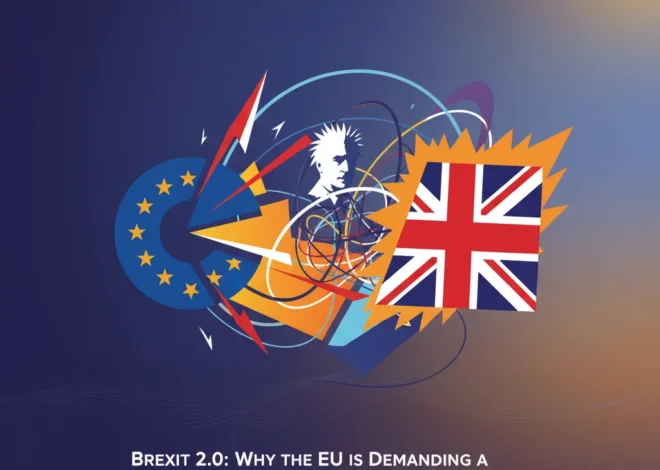
The Paralysis of Prediction: How UK Budget Leaks Are Stalling the Economy
In the world of finance and economics, certainty is a priceless commodity. Markets thrive on clear data, predictable policy, and stable governance. Yet, in the run-up to major fiscal events like the UK Budget, a familiar and disruptive ritual takes place: the slow, deliberate trickle of policy leaks. This year is no different. While the government maintains a stoic front, a growing chorus of experts warns that this pre-Budget speculation is more than just political theatre; it’s a potent economic sedative, inducing what one prominent economist has called a “paralysis for businesses and consumers.”
The central debate was cast into sharp relief recently. Laura Trott, Chief Secretary to the Treasury, publicly dismissed concerns that the flurry of leaks has damaged the economy. Her position is that the government is focused on making responsible, long-term decisions. However, this view stands in stark contrast to the assessment of Andy Haldane, the former chief economist at the Bank of England. Haldane argues that the persistent uncertainty created by these “trial balloons” forces both companies and households to hit the pause button on crucial financial decisions, effectively stalling economic momentum.
This article delves into this critical disconnect. We will dissect the anatomy of a budget leak, explore the tangible economic consequences of market paralysis, and provide a strategic playbook for investors and business leaders navigating this turbulent period. Is this an overblown media narrative, or is the UK economy paying a real price for political gamesmanship?
The Anatomy of a Budget Leak: Political Strategy vs. Economic Stability
To understand the impact, one must first understand the intent. Budget leaks are rarely accidental. They are often calculated political manoeuvres designed to gauge public and market reaction to a potential policy before it’s set in stone. This year’s speculative buffet has included potential cuts to National Insurance, adjustments to income tax thresholds, controversial changes to the “non-dom” tax status, the introduction of a new vaping tax, and a continued freeze on fuel duty.
From a political standpoint, the logic is clear. Floating a popular idea like a tax cut can generate positive headlines. Leaking a more contentious policy allows the government to assess the level of backlash and, if necessary, quietly shelve the idea, claiming it was “just speculation.” In an election year, this ability to test the waters without commitment is an invaluable political tool.
However, the arena of public opinion and the world of investing and corporate finance operate on entirely different principles. While a politician sees a flexible trial balloon, a CEO sees a red flag of uncertainty. A family considering a major purchase sees a reason to wait. This is where the economic damage begins.
Green Tape or Green Gold? Deconstructing the Economic Clash Between UK Housing and Nature
The Haldane Hypothesis: How Uncertainty Breeds Economic Paralysis
Andy Haldane’s use of the word “paralysis” is not hyperbole; it’s a precise description of rational economic behaviour in the face of uncertainty. When the rules of the game are in flux, the smartest move is often to not play at all. This inaction manifests across the economy in several critical ways:
- Corporate Indecision: Businesses, large and small, operate on financial models. A potential 2p cut to National Insurance, for example, directly impacts hiring costs and profitability projections. A company on the verge of a major expansion or a significant capital investment might delay the decision until the policy is confirmed. Why commit millions of pounds when the tax landscape in a month could be materially different? This cumulative hesitation across thousands of businesses stifles investment, job creation, and overall growth.
- Consumer Hesitation: Households behave similarly. A family considering buying a new car, renovating their home, or making a significant investment might wait to see if a rumoured income tax cut will increase their disposable income. This waiting game depresses retail sales and demand for services, creating a drag on the consumer-driven sectors of the economy.
- Stock Market Volatility: The stock market abhors uncertainty. Leaks create winners and losers before any policy is even announced. Rumours of a new vaping tax can send tobacco and related stocks tumbling, while whispers of an extended fuel duty freeze might give transport and logistics stocks a temporary, speculative bump. This creates short-term volatility that can deter long-term investing, as institutional investors and retail traders alike become wary of placing bets on political whims. The practice of trading becomes more about rumour-chasing than fundamental analysis.
A Tale of Two Announcements: Leaks vs. Surprises
To quantify the difference in market and business reaction, it’s helpful to compare the impact of a leaked policy versus a traditional, surprise announcement on Budget Day. The following table illustrates the trade-offs.
| Factor | Impact of Leaked Policy | Impact of Surprise Announcement |
|---|---|---|
| Market Volatility | Prolonged period of low-grade volatility and speculation. Sector-specific turbulence. | Sharp, immediate, but short-lived market reaction on the day of the announcement. |
| Business Investment | Causes delays and “paralysis” as businesses wait for confirmation. Stifles short-term planning. | No pre-announcement paralysis. Businesses react and adapt immediately post-announcement. |
| Consumer Confidence | Creates uncertainty and hesitation, potentially depressing spending in the run-up to the Budget. | Confidence is impacted directly on the day, either positively or negatively, leading to clearer spending patterns. |
| Political Capital | Allows government to “test the waters” and avoid backlash from unpopular policies. Spreads out media focus. | High-risk, high-reward. A popular policy creates a major positive moment; an unpopular one causes immediate, concentrated backlash. |
As the table shows, while leaks may offer a political shield, they do so at the cost of sustained economic uncertainty—a price that many, including the former Bank of England chief economist, believe is too high. The government’s defence, as articulated by Minister Trott, is that “the most important thing for the economy is that we take the right long-term decisions.” (source) While this is undoubtedly true, it sidesteps the immediate damage caused by the process itself.
The Wider Ripples: From Banking to FinTech
The impact of this paralysis extends beyond the high street and the trading floor. It permeates the entire financial ecosystem.
In the banking sector, lenders may tighten credit conditions amid economic uncertainty, making it harder for businesses to secure the very loans they need for the investment they are already delaying. Financial advisors are put in an impossible position, trying to guide clients on pensions, savings, and investments based on speculative newspaper headlines.
The world of financial technology, or fintech, is not immune either. While often seen as a nimble and disruptive force, the sector is still reliant on stable macroeconomic conditions. Venture capital funding for fintech startups can become more scarce as investors adopt a “wait and see” approach. The development of new products, from trading apps to digital banking platforms, relies on a clear understanding of the future regulatory and tax environment.
In a sense, the opaque and unpredictable nature of budget leaks stands in stark contrast to the principles driving much of modern finance. Technologies like blockchain are built on the promise of transparency and immutable data, aiming to create trustless systems. The current political process, however, seems to be actively injecting distrust and ambiguity into the system, creating a headwind for innovation.
The Investor’s Playbook: How to Navigate the Noise
For business leaders, investors, and finance professionals, sitting on the sidelines indefinitely is not an option. Navigating this period of government-induced uncertainty requires a disciplined and strategic approach.
- Focus on Fundamentals, Not Rumours: The most crucial rule of investing is to focus on the long-term health and fundamentals of a business, not the daily political chatter. A strong company with a solid balance sheet and a competitive advantage will remain so regardless of a 1% or 2% change in a specific tax. Avoid knee-jerk trading decisions based on leaks.
- Embrace Scenario Planning: For business leaders, this is a time for robust scenario planning. Model the potential impacts of the most likely policy changes (e.g., tax cuts vs. no tax cuts). What does each scenario mean for your cash flow, your hiring plans, and your pricing strategy? Being prepared for multiple outcomes removes the paralysis.
- Maintain Liquidity and Flexibility: In times of uncertainty, cash is king. Both businesses and individual investors can benefit from maintaining a healthy level of liquidity. This provides the flexibility to act decisively once the political fog clears and to weather any short-term market volatility.
Conclusion: The High Price of Political Whispers
The debate between the Treasury and its critics is more than a simple political disagreement. It is a fundamental clash of perspectives on how a modern economy functions. The government’s view suggests that the grand, long-term policy direction is all that matters, and the noise along the way is insignificant. The economic reality, however, shows that the “noise”—the uncertainty, the speculation, the paralysis—has a tangible and immediate cost.
As long as budget leaks remain a feature of the political landscape, businesses and investors will be forced to contend with this manufactured uncertainty. While the government may believe it is skillfully managing public perception, it risks undermining the very confidence and predictability that are the bedrock of a prosperous economy. In the end, stability is not achieved merely by making the right decisions, but by making them in a way that fosters trust and enables, rather than paralyses, the economic actors who drive growth. The true test of this Budget will not just be the policies it contains, but whether the process of its unveiling ultimately helped or hindered the economy it purports to serve.


